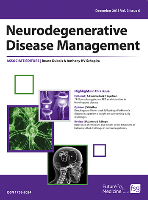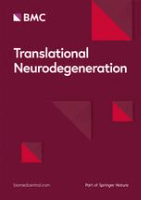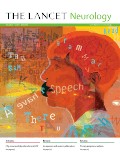
Alzheimers & Dementia
Scope & Guideline
Shaping the future of Alzheimer's research and treatment.
Introduction
Aims and Scopes
- Neurobiology of Alzheimer's Disease:
Investigating the underlying biological mechanisms of Alzheimer's disease, including amyloid and tau pathology, neuroinflammation, and neurodegeneration. - Clinical and Diagnostic Biomarkers:
Development and validation of biomarkers for early detection, diagnosis, and monitoring of Alzheimer's disease progression, leveraging blood, CSF, and imaging techniques. - Treatment and Therapeutics:
Research on pharmacological and non-pharmacological interventions aimed at modifying disease progression and improving quality of life for patients. - Epidemiology and Risk Factors:
Exploring the epidemiology of Alzheimer's disease, including risk factors, prevalence, and the impact of comorbidities across diverse populations. - Socioeconomic and Behavioral Aspects:
Understanding the role of social determinants, caregiver experiences, and lifestyle factors in the context of Alzheimer's disease and dementia care. - Innovative Research Methodologies:
Utilizing cutting-edge technologies such as AI, machine learning, and multi-omics approaches to enhance research capabilities and data analysis.
Trending and Emerging
- Biomarker Development and Validation:
There is a growing emphasis on identifying and validating biomarkers for early diagnosis and progression tracking, particularly through blood-based assays and imaging techniques. - Digital Health and Technology Integration:
The integration of digital tools for cognitive assessment and monitoring, including AI and machine learning applications, is becoming increasingly significant in Alzheimer's research. - Neuroinflammation and Immune Response:
Research focusing on neuroinflammatory processes and the immune system's role in Alzheimer's disease is gaining traction, highlighting its potential for therapeutic targeting. - Lifestyle and Behavioral Interventions:
Emerging studies are exploring the impact of lifestyle modifications, such as diet and physical activity, on cognitive health and dementia risk reduction. - Longitudinal and Multi-Cohort Studies:
There is an increasing trend towards conducting long-term longitudinal studies that examine cognitive decline across diverse populations and various stages of Alzheimer's disease. - Health Disparities and Social Determinants:
Research addressing health disparities and the influence of social determinants on Alzheimer's disease prevalence and outcomes is becoming more prominent, reflecting a broader societal perspective.
Declining or Waning
- Traditional Neuropsychological Assessments:
There is a noticeable shift from reliance on traditional neuropsychological tests towards more innovative and objective measures, such as digital cognitive assessments and biomarkers. - Generalized Risk Factor Studies:
Research focusing broadly on risk factors without specific contextual application is declining in favor of studies that consider individual and population-specific variables. - Studies with Limited Diversity:
Research that does not address or include diverse populations is becoming less prevalent, as the field increasingly values inclusivity and representation in study designs. - Single-Domain Approaches:
There is a move away from single-domain studies towards integrated approaches that consider the multifactorial nature of Alzheimer's disease, including genetic, environmental, and lifestyle factors. - Basic Science without Translational Focus:
Basic science research that does not translate into clinical applications or implications is less favored, as the journal emphasizes studies that bridge the gap between laboratory findings and clinical practice.
Similar Journals

CURRENT OPINION IN NEUROLOGY
Exploring the Frontiers of Neurology.CURRENT OPINION IN NEUROLOGY is a premier academic journal dedicated to providing insightful overviews and critical analyses across all areas of neurology and clinical neurology. Published by Lippincott Williams & Wilkins, this esteemed journal boasts an impressive impact factor, highlighting its influence and relevance in the field—positioning it in the Q1 category for both neurology and clinical neurology as of 2023. With its comprehensive coverage, the journal serves as a vital resource for researchers, healthcare professionals, and students aiming to stay abreast of the latest developments, trends, and breakthroughs in neurological science and practice. Though not open access, articles are available via institutional subscriptions or individual purchase, ensuring that vital research remains accessible to a wide audience. Covering research from its inception in 1993 to ongoing studies in 2024, CURRENT OPINION IN NEUROLOGY stands out as an essential platform for disseminating knowledge and fostering dialogue within the dynamic and evolving landscape of neurology.

MOLECULAR NEUROBIOLOGY
Bridging Basic Science and Clinical InnovationWelcome to Molecular Neurobiology, the premier journal dedicated to the exploration of the molecular mechanisms underlying nervous system function and pathophysiology. Published by Springer, this journal provides an essential platform for disseminating high-quality research in the rapidly evolving fields of Cellular and Molecular Neuroscience and Neurology, boasting an impressive impact factor that reflects its esteemed position within the academic community. With its ranking in the Q1 and Q2 quartiles for various neuroscience categories, Molecular Neurobiology stands at the forefront of groundbreaking discoveries, showcasing innovative studies that bridge basic science and clinical application. Researchers and professionals are invited to contribute to its rich portfolio, which spans from fundamental insights into cellular processes to advanced therapeutic strategies. Although Molecular Neurobiology does not operate as an Open Access journal, its influential body of work remains accessible through institutional and personal subscriptions. As we converge from 1987 to 2024, we continue to aim for excellence, seeking to catalyze progress in understanding neurological diseases and enhance the scientific dialogue within the neuroscience community.

American Journal of Alzheimers Disease and Other Dementias
Transforming understanding of Alzheimer's disease.The American Journal of Alzheimer's Disease and Other Dementias, published by SAGE Publications Inc, is a pivotal resource for researchers, clinicians, and students engaged in the study of neurodegenerative diseases, particularly Alzheimer’s disease and various forms of dementia. With an impact factor reflecting its significance in the field, the journal boasts an open-access format since 2020, ensuring that groundbreaking research is accessible to a global audience. The journal holds prestigious Q2 rankings across several categories, including Clinical Psychology, Geriatrics and Gerontology, Neuroscience, and Psychiatry and Mental Health. Covering a wide spectrum from 1986 to 2024, it provides essential insights into innovative treatments, care strategies, and the latest findings in dementia research, solidifying its importance in fostering knowledge and advancing the field. With a commitment to high-quality scholarship, this journal is an indispensable tool for advancing understanding in the dynamic landscape of dementia studies.

AIMS Neuroscience
Advancing neuroscience through open access innovation.AIMS Neuroscience is an esteemed open-access journal published by the American Institute of Mathematical Sciences (AIMS), dedicated to advancing the field of neuroscience since its inception in 2014. With a robust ISSN of 2373-8006 and an E-ISSN of 2373-7972, this journal aims to provide a platform for innovative research and scholarly discourse that spans the diverse and dynamic landscape of the neuroscience discipline. As of 2023, it holds a respectable Q3 category ranking in the miscellaneous neuroscience field and ranks #65 out of 113 in general neuroscience according to Scopus, positioning it in the 42nd percentile for impact. AIMS Neuroscience encompasses a broad scope of topics, from neurobiology and cognitive neuroscience to computational models and neuroengineering, making it a vital resource for researchers, professionals, and students alike. The journal's commitment to open access ensures that cutting-edge research is freely available, fostering collaboration and knowledge sharing within the global neuroscience community.

Neurodegenerative Disease Management
Advancing Knowledge in Neurodegenerative Disease ManagementNeurodegenerative Disease Management is a distinguished journal published by FUTURE MEDICINE LTD, focusing on the pivotal issues surrounding the management of neurodegenerative diseases. Since its inception in 2014, this journal has emerged as a significant resource within the fields of medicine and neurology, currently holding a respected position with a Q2 category ranking in Medicine (miscellaneous) and Q3 in Neurology (clinical) for 2023. With an ISSN of 1758-2024 and E-ISSN 1758-2032, the journal provides a platform for the dissemination of innovative research, clinical practices, and advancements in treatment strategies for conditions such as Alzheimer's, Parkinson's, and multiple sclerosis. The journal is particularly committed to enhancing knowledge sharing among researchers, health professionals, and students, contributing to the collective effort in combatting neurodegenerative diseases. Though not open access, its articles are meticulously curated to ensure high-quality, impactful contributions to the field, making it an essential reference for those engaged in neurology and related disciplines.

Translational Neurodegeneration
Unlocking Innovations in NeurodegenerationTranslational Neurodegeneration, an esteemed journal in the field of neuroscience, is published by BMC and has been an open access platform since 2012, delivering high-quality research from its base in the United Kingdom. With an impressive impact factor reflecting its significant contributions, this journal focuses on critical advancements in cellular and molecular neuroscience, cognitive neuroscience, and clinical neurology, boasting a Q1 ranking across all these categories as of 2023. Researchers and professionals benefit from its extensive reach, characterized by exceptional Scopus rankings that place it in the top percentile of its field. The journal serves as a vital resource for academics and healthcare practitioners alike, aiming to bridge the gap between laboratory discoveries and clinical applications, thereby enhancing understanding and treatment of neurodegenerative diseases. With its commitment to open access, Translational Neurodegeneration ensures that its published research is accessible to a global audience, promoting collaboration and knowledge exchange within the scientific community.

JOURNAL OF ALZHEIMERS DISEASE
Uniting disciplines to combat Alzheimer's disease.Journal of Alzheimer's Disease, published by IOS Press, stands as a pivotal resource in the fight against Alzheimer's and related neurodegenerative disorders. With an ISSN of 1387-2877 and an E-ISSN of 1875-8908, this esteemed journal has evolved since its inception in 1998, providing a vital platform for academic research and clinical practice in the realms of Clinical Psychology, Geriatrics and Gerontology, Neuroscience, and Psychiatry and Mental Health. Ranked in the Q1 category across several disciplines, including Clinical Psychology and Geriatrics, this journal not only highlights significant advancements in understanding Alzheimer's disease but also fosters interdisciplinary dialogue among researchers, healthcare professionals, and policymakers. Boasting robust Scopus rankings—such as 49th in Clinical Psychology and 29th in Geriatrics—this journal is committed to disseminating high-quality research that informs both therapeutic strategies and public health initiatives. The Journal of Alzheimer's Disease is an essential resource for anyone dedicated to exploring the complexities of cognitive decline and enhancing care for affected individuals.

Degenerative Neurological and Neuromuscular Disease
Exploring breakthroughs in neurological health.Degenerative Neurological and Neuromuscular Disease is a distinguished academic journal published by DOVE MEDICAL PRESS LTD, focusing on the latest advancements in the field of neurology and neuromuscular disorders. With a commitment to disseminating high-quality research, the journal aims to provide a critical platform for researchers, healthcare professionals, and students to share and engage with groundbreaking studies that advance our understanding of degenerative conditions affecting the nervous system. Although the journal's impact factor and h-index are currently not available, its open access model ensures that the valuable findings published within are accessible to a global audience, thereby fostering collaboration and innovation in neurological health. The journal's address is PO BOX 300-008, Albany, Auckland 0752, New Zealand, reflecting its international relevance and commitment to advancing the field of neurology. As the understanding of neurodegenerative diseases and neuromuscular challenges continues to evolve, Degenerative Neurological and Neuromuscular Disease serves as an essential resource for anyone dedicated to improving patient outcomes and advancing scientific knowledge.

LANCET NEUROLOGY
Innovative Discoveries for Tomorrow's NeurologistsThe Lancet Neurology is a premier academic journal published by Elsevier Science Inc, specializing in the field of neurology. With a robust impact factor that signifies its authoritative presence, it consistently ranks in the Q1 category for clinical neurology according to the 2023 standards, positioning itself as the leading journal in its domain, ranking #1 out of 400 in Scopus' neurology rankings and placing in the 99th percentile. Since its establishment in 2002, it has provided a vital platform for disseminating innovative research and clinical advances related to neurological disorders. The journal’s precise focus includes cutting-edge studies on neurodegenerative diseases, stroke, epilepsy, and neuroimaging, which are essential for advancing clinical practice and improving patient outcomes. While it does not offer open access, readers can find high-impact research published monthly, making it indispensable for practitioners, researchers, and students eager to stay at the forefront of neurological science.

AGEING RESEARCH REVIEWS
Unraveling the Complexities of AgingAGEING RESEARCH REVIEWS, published by Elsevier Ireland Ltd, is a prestigious academic journal dedicated to advancing our understanding of the biological, psychological, and societal aspects of aging. With an ISSN of 1568-1637 and E-ISSN of 1872-9649, this journal has established itself as a leading resource in the fields of Aging, Biochemistry, Biotechnology, Molecular Biology, and Neurology, consistently ranked in the Q1 category across these disciplines as of 2023. For researchers, students, and professionals eager to explore cutting-edge findings and innovative methodologies, AGEING RESEARCH REVIEWS gathers comprehensive reviews that facilitate a deeper understanding of age-related processes. Its high impact factor and exceptional Scopus rankings—ranking #1 in Aging and #3 in Neurology—underscore its critical role in shaping contemporary aging research. This journal not only serves as a vital reference point but also fosters a collaborative space for the scientific community focused on improving health outcomes across the life span. Published continuously since 2002 and with a converging focus through 2024, AGEING RESEARCH REVIEWS remains committed to disseminating impactful knowledge that drives progress in our understanding of the aging process.